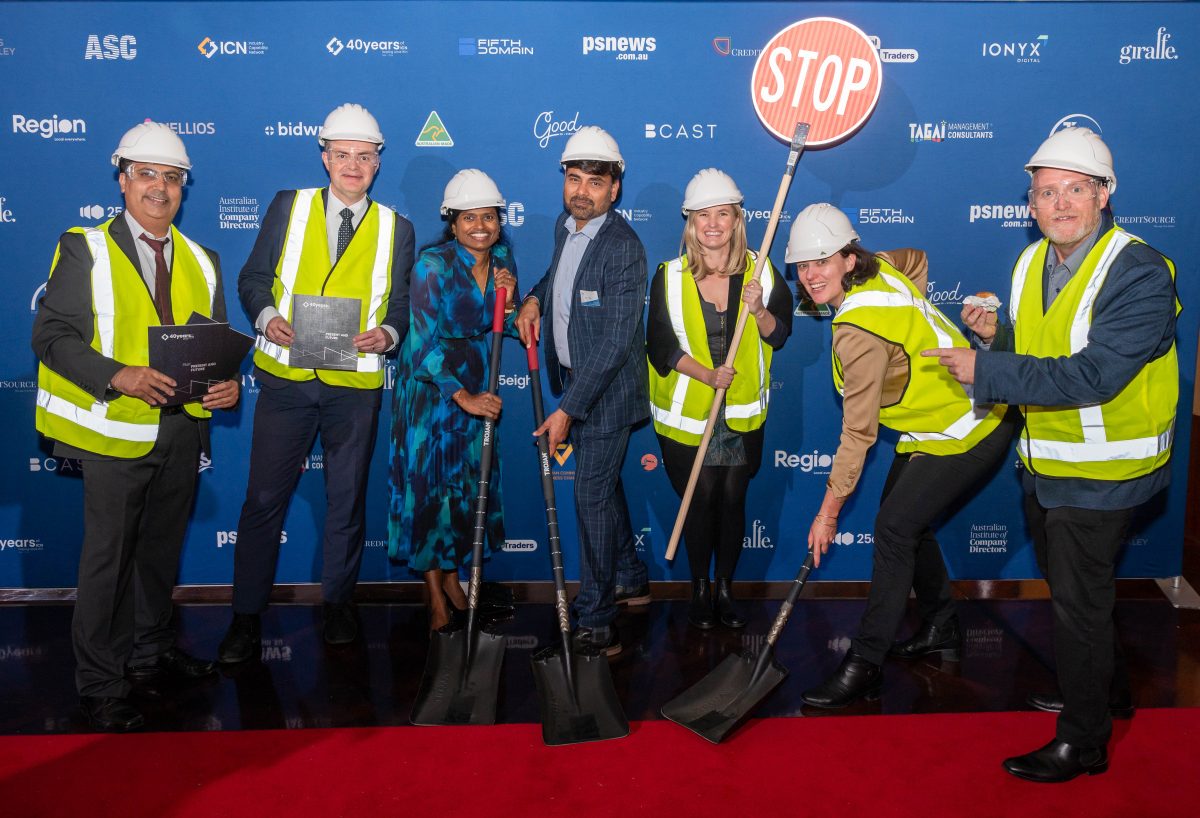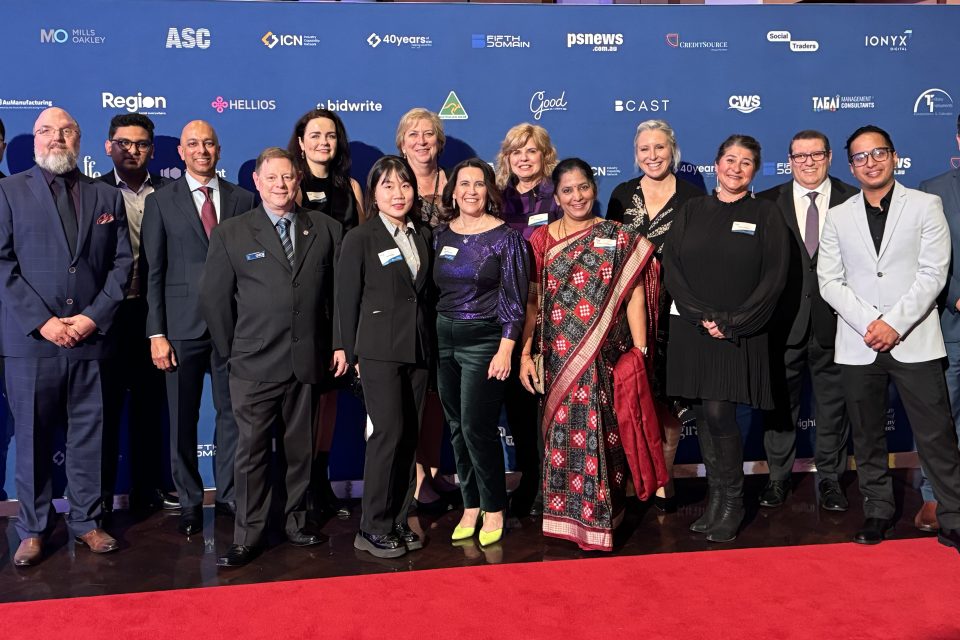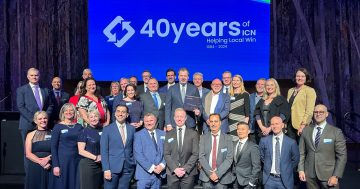
Members of ICN’s national office came to celebrate the organisation’s 40th anniversary. Photo: GoodPR.
Securing $50 billion in work for Australian businesses was among the major milestones celebrated when the Industry Capability Network (ICN) marked “40 years of helping locals win”.
Staff and directors from ICN, representatives from the broad range of industries it has worked with, politicians and foreign dignitaries were among the spread of guests who gathered at Parliament House for the event.
“It was quite extraordinary that so many people were keen to be a part of that historic moment, celebrating 40 years of helping locals win, but also who were interested in seeing how ICN can be leveraged as a tool for greater local supply chain involvement in sectors in Australia and NZ,” ICN ACT ACT Business Manager Louise Wakefield said.
However, while the organisation formerly known as the Industrial Supplies National Office has evolved many times over these four decades, Louise said its north star has never changed.
“We were created to match local service providers and suppliers with opportunities to contribute to public and private projects. That hasn’t changed. We’re still about supplying local businesses with full, fair and reasonable access to projects and building capability for small and medium businesses to be able to participate,” she said.
“That makes us a key stakeholder in supporting government initiatives being practically implemented.”
In their addresses, ICN chair Derek Lark, ICN Victoria chair Tim Piper and Emeritus Professor Roy Green echoed the same sentiment, that while the legacy of 40 years was quite extraordinary in itself, ICN was well placed to be a key delivery partner to government and its many stakeholders for the next 40 years and beyond.
The next four decades would be about re-affirming ICN as the key delivery partner for a Future Made in Australia.
This will mean being a major collaborator in the nation’s energy transition and building up Australia’s sovereign capabilities.






Louise said from a strategic standpoint, Australia needed to reduce the importation of key products and services, and lean more into strengthening its small and medium businesses by increasing their participation in local supply chains.
“We see ourselves as the connector between small businesses and industry on the net zero transition. We want to support SMEs to be part of those local supply chains so that we’re reducing reliance on overseas suppliers,” Louise said.
“A strong local supply chain means small businesses are thriving, and that means a stronger economy for Australia, which in turn means regional communities are thriving as well. Everything is connected.
“When businesses can partake in a pipeline of work and can plan, that means their families and the communities they operate in are part of the success story.”
At the same time, supporting Australian SMEs in increasing their capacity for exporting their products and services would be a key part of ICN’s strategic approach to support government initiatives that would make the country a global leader.
Key products and services would include health, food production and renewable energy.
“Some capabilities are very niche. We don’t have to be the supplier of all capabilities, but we can be very strategic in positioning Australia as a leader in critical capabilities that support the energy transition towards net zero and other industries,” Louise said.
ICN has several measures in the pipeline to support its long and short-term goals, including the establishment of a climate strategy team and strengthening its capacity to support small and medium businesses to be net zero-ready.
This would involve helping members build awareness and understanding of their obligations in mandatory scope 3 reporting (climate-related financial disclosures) and what that means for supply chains working on larger projects.
The organisation would also take a keen interest in collaborations with Australian Indigenous suppliers and their peak bodies and even extend its reach beyond Australian shores.
“We’re looking at how we can support our neighbouring countries in the Indo-Pacific through the sharing of products and services because those regional relationships are so important,” Louise said.
Original Article published by Dione David on Riotact.











